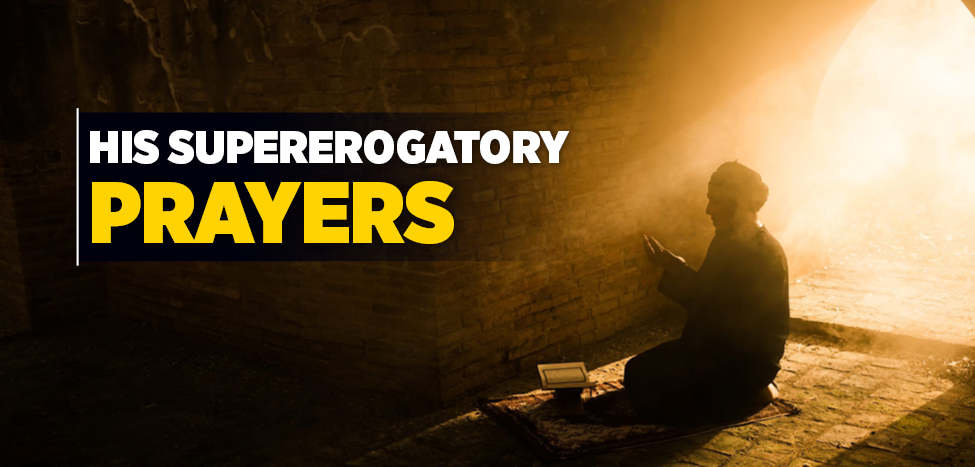What is supererogatory prayers? What is supererogatory prayers meaning in islam?
“…My slave keeps on coming closer to Me through performing Nawafil (praying or doing extra deeds besides what is obligatory) till I love him…” (Bukhari, Riqaq, 38)
The life of the Messenger of Allah (pbuh) is teemed with excellent samples of worship and servitude to Allah the Almighty. There were supererogatory ritual prayers that he performed at various times during the day. He also encouraged his ummah to perform these prayers as much as they can. For servants of Allah the fastest way to get close to Him is by completing the obligatory acts of obedience, however they can continue their spiritual journey by doing supererogatory prayers. Allah the Almighty promises such blessings in Paradise that no eyes have ever seen and no one has ever thought of before. The Prophet (pbuh) says that:
“A house will be built in Paradise, for anyone who prays in a day and a night twelve voluntary rak’ahs” (Muslim, Musafirun, 103)
One of the incidents which show the merits of the nawafils (supererogatory prayers) and its rewards happened on the day of the conquest of Khaibar.
“A man came to the Messenger of Allah (pbuh) and said:
“Apostle of Allah, I have gained today so much so that no one gained from this valley.” Allah’s Messenger (pbuh) asked:
“Woe unto you, how much did you gain?”
The man replied:
“I kept on selling and buying until I gained three hundred uqiyahs.[1]” The Apostle of Allah (pbuh) said:
“I tell you a man who gained better than you.”
The man asked:
“What is that, Apostle of Allah?” He replied:
“Two rak’ahs of supererogatory prayer after the obligatory prayer.” (Abu Dawud, Jihad, 168)
The first thing that the servant will be questioned on Judgment Day is the ritual prayers. The first thing which will come to the help of a servant on that fearsome and difficult day is his/her supererogatory prayers. This is expressed in the following prophetic saying:
“On Judgment Day the first thing that a servant is going to be questioned is ritual prayer. If his/her prayer is properly performed, he/she wins; but if it is not, he/she loses. If there are incomplete obligatory prayers of the servant, his Lord says:
“Look if there is any supererogatory prayer of my servant. The missing obligatory prayers get completed by the supererogatory ones. Then the servant gets questioned from his/her other acts in the same manner.” (Tirmidhi, Salat, 188)
The Messenger of Allah (pbuh) preferred to perform the nawafils in his home just as much as he made every effort to perform the obligatory prayers in congregation. He said, in this respect:
“… O People! Pray in your houses, for the best prayer of a person is that which he prays in his house except the compulsory prayers.” (Bukhari, Adhan, 81)
As it is known that obligatory prayers are acts of worship which all Muslims have to perform. Therefore, they should be performed openly and they should be strongly encouraged. This is why it is more appropriate to perform them openly and in consciousness of the congregation. Whereas, supererogatory prayers are acts of worship which are left to the person’s will, in other words it is optional. In order to easily overcome the diseases of hypocrisy and fame, those who compete on the path of Allah need to perform nawafils secretly at their homes.
Another important point is to honor and bless the homes by performing supererogatory prayers. The great quantity of nawafils performed should fill a believer’s house with a spiritual and divine atmosphere. It is not an appropriate behavior that believers who pay great attention to congregational prayers turn their homes into ruins. In this respect, the Prophet (pbuh) warned the believers saying:
“Offer some of your prayers (Nawafil) at home, and do not take your houses as graves.” (Bukhari, Salat, 52)
[1] Uqiyyah Is Measurement Of Weight, Which Is Equal To 1283 Grams.
Source: An Excellent Exemplar, Osman Nuri Topbaş, Erkam Publications





